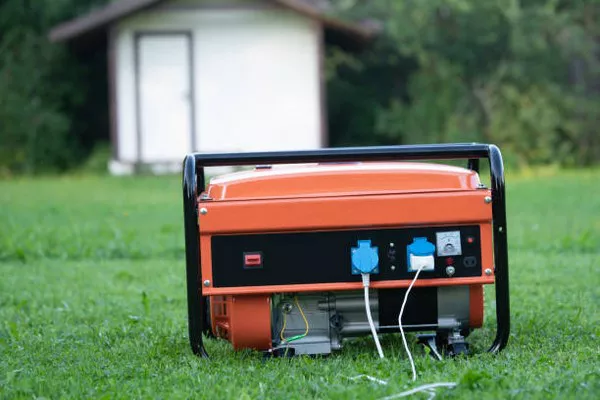Generators are invaluable tools for both emergency situations and recreational use. A 3000 watt generator is a popular choice among homeowners, campers, and contractors due to its versatility and power output. This article will explore what a 3000 watt generator can run, including household appliances, tools, and other equipment, along with considerations for optimal use.
In a world increasingly reliant on electrical power, generators provide a critical backup solution. Understanding what a 3000 watt generator can handle is essential for anyone looking to invest in portable power. This article outlines the types of devices and appliances that can be powered, enabling users to make informed decisions.
Understanding Generator Power Ratings
1. What is Wattage?
Wattage measures electrical power and indicates how much power an appliance requires to operate. Generators are rated by their output capacity, expressed in watts (W). A 3000 watt generator can supply up to 3000 watts of power to connected devices.
2. Starting vs. Running Watts
When assessing generator capacity, it’s crucial to distinguish between starting (surge) watts and running (continuous) watts:
Starting Watts: Appliances with motors (like refrigerators and air conditioners) often require more power to start than to run. This initial surge can be significantly higher than the running wattage.
Running Watts: This is the power needed to keep an appliance running after it has started.
A 3000 watt generator can provide power for appliances with a combined running wattage up to 3000 watts, but users must consider the starting wattage for devices with higher initial demands.
What a 3000 Watt Generator Can Run
1. Essential Home Appliances
A 3000 watt generator can effectively power several essential home appliances, making it suitable for emergency backup situations. Here are some common examples:
Refrigerators: Most modern refrigerators require between 600 to 800 running watts and about 1200 to 2000 starting watts. A 3000 watt generator can handle a refrigerator, especially if no other high-wattage appliances are connected simultaneously.
Freezers: Similar to refrigerators, freezers typically require around 600 to 800 running watts.
Microwave Ovens: Most microwave ovens require between 800 to 1200 running watts. A 3000 watt generator can run a microwave without issues, provided that the starting wattage is also accounted for.
Sump Pumps: A standard sump pump may need around 800 running watts and up to 1500 starting watts, making it manageable for a 3000 watt generator.
2. Heating and Cooling Devices
Space Heaters: Electric space heaters often require between 1000 to 1500 watts, making them suitable for operation on a 3000 watt generator.
Fans: Standard fans typically use about 75 to 100 watts, allowing multiple fans to operate simultaneously.
Air Conditioners: Small portable air conditioners can require around 1200 to 2000 watts for running and may exceed 3000 watts at startup. A 3000 watt generator might run a small unit, but it’s crucial to check specific requirements.
3. Electronics and Appliances
A 3000 watt generator can power various electronic devices, including:
Televisions: Most LED TVs use between 50 to 300 watts, making them easy to power.
Laptops: A laptop generally consumes about 50 to 100 watts, allowing several laptops to run together without issues.
Smartphones and Tablets: These devices consume minimal power (5 to 20 watts), making them easy to charge alongside other appliances.
Game Consoles: Consoles like Xbox or PlayStation usually require around 200 to 300 watts.
4. Tools and Equipment
For DIY enthusiasts and professionals, a 3000 watt generator can power various tools:
Power Tools: Many corded power tools, such as drills and saws, require between 500 to 1500 watts. You can operate multiple tools as long as their total wattage does not exceed the generator’s capacity.
Pressure Washers: Standard pressure washers typically require around 1200 to 2000 watts.
Pumps: Water pumps can vary in wattage but generally require about 500 to 1500 watts.
Practical Applications of a 3000 Watt Generator
1. Emergency Backup Power
During power outages, a 3000 watt generator can provide essential backup power for appliances, ensuring food preservation and maintaining heating or cooling needs.
2. Camping and Outdoor Activities
For camping or outdoor events, a 3000 watt generator can power lights, cooking appliances, and electronics, enhancing the experience without relying solely on battery power.
3. Job Sites
In construction or renovation projects, a 3000 watt generator can supply power to tools and equipment, allowing work to continue without interruption.
Considerations When Using a 3000 Watt Generator
1. Total Wattage Calculation
When using a generator, calculate the total wattage of all devices you intend to run simultaneously. Ensure that the combined running wattage does not exceed 3000 watts and account for starting wattage where necessary.
2. Fuel Type
Most generators operate on gasoline, propane, or diesel. Consider the fuel type when selecting a generator, as it impacts operating costs and storage requirements.
3. Runtime and Fuel Efficiency
Check the generator’s runtime on a full tank, as this affects how long you can power your devices. Generators vary in fuel efficiency, impacting overall costs.
4. Maintenance and Care
Regular maintenance is essential to keep a generator running smoothly. This includes checking oil levels, fuel quality, and ensuring all connections are secure.
5. Safety Precautions
Always operate generators in well-ventilated areas to prevent carbon monoxide buildup. Follow the manufacturer’s guidelines for safe usage and maintenance.
Conclusion
A 3000 watt generator is a versatile and practical tool for providing power during emergencies, outdoor activities, and job sites. Understanding what it can run helps users maximize its potential and ensure that essential appliances and tools remain operational.
By considering factors such as wattage, fuel type, and safety precautions, individuals can make informed decisions about selecting and using a 3000 watt generator. As power needs continue to evolve, having a reliable generator can provide peace of mind and convenience in various situations.
Related topics:

